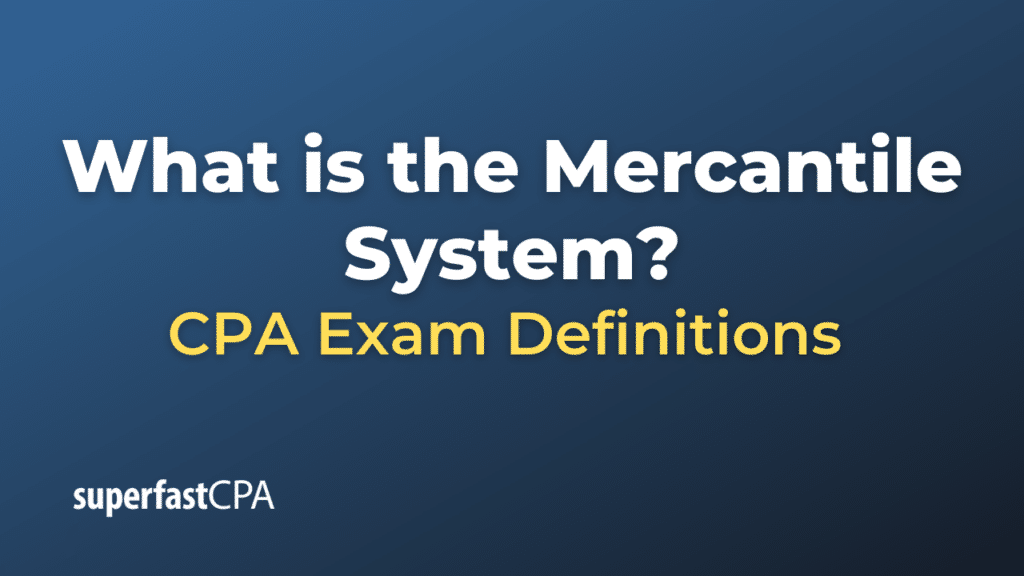Mercantile System
The mercantile system, also known as mercantilism, is an economic theory that was dominant in Europe from the 16th to the 18th centuries. It holds that a nation’s wealth and power are best served by increasing its stock of gold and silver through a positive balance of trade with other nations.
The basic tenets of mercantilism are:
- Wealth is finite: Mercantilists believed that there was a finite amount of wealth in the world, and therefore, countries had to compete for this limited wealth. This view often led to trade wars and territorial disputes.
- Focus on Exports over Imports: Under mercantilism, nations aimed to export more than they imported, creating a trade surplus. The idea was that this would allow them to accumulate more gold and silver, thus increasing the nation’s wealth.
- Colonialism and Monopolies: Many European powers established colonies to ensure a steady supply of raw materials. These raw materials were then sent back to the home country, where they were manufactured into goods and exported. Additionally, governments often granted monopolies to certain companies, giving them exclusive rights to trade in particular areas or with specific colonies.
- Tariffs and Navigation Acts: Governments imposed high tariffs (taxes) on imported goods to protect domestic industries and maintain a positive trade balance. They also implemented Navigation Acts, which mandated that goods shipped to and from their colonies had to be transported on ships built and owned by citizens of the home country.
Mercantilism fell out of favor with the advent of classical economics in the late 18th century, which promoted free trade and competition. Adam Smith’s “The Wealth of Nations” (1776) was particularly influential in challenging mercantile ideas. Smith argued that wealth was not finite and that trade was not a zero-sum game but rather could be beneficial for all parties involved.
Example of the Mercantile System
Let’s consider the historical example of England during the period of mercantilism.
During the 17th and 18th centuries, England practiced mercantilism to boost its national wealth and power. It established colonies, such as those in North America and the Caribbean, to provide raw materials like cotton, sugar, and tobacco. These resources were shipped back to England where they were used to manufacture goods.
For example, cotton would be turned into textiles in English factories. These finished goods would then be sold both domestically and exported to other countries. By exporting more goods than it imported, England aimed to achieve a favorable balance of trade and accumulate wealth.
Furthermore, England imposed Navigation Acts, laws that dictated that all goods shipped to and from English colonies had to be carried on English ships. This not only helped to strengthen the English shipping industry but also allowed England to control the trade of its colonies more closely.
Another aspect of England’s mercantilist policy was the imposition of high tariffs on foreign goods, which made imported goods more expensive and thus encouraged people to buy English-made products.
The goal of all these policies was to make England a self-sufficient and wealthy nation, with a strong manufacturing sector, a positive balance of trade, and large reserves of gold and silver.
While mercantilism was a dominant economic system in its time, it’s worth noting that modern economists often criticize it for its protectionist policies and its focus on accumulating precious metals. The economic theories that followed mercantilism argue that wealth can be created (not just finite and transferred) and that trade can benefit all parties involved, not just the one with the favorable balance of trade.













